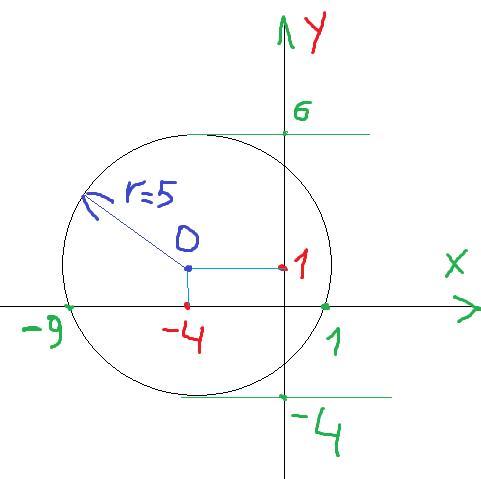Предмет: Геометрия,
автор: elina2466
Побудуйте на координатній площині коло, задане рівнями (х+4)^2+(у-1)^2=25
Ответы
Автор ответа:
0
(х - v)² + (у - w)² = r² - уравнение окружности на декартовой плоскости
с центром в точке O(v;w) и радиусом r.
В нашем случае: (х+4)^2+(у-1)^2=25 ⇔ (х - (-4))² + (у - 1)² = 5² ⇒
О(-4; 1) - центр окружности, r = 5 – её радиус. Эскиз графика на рисунке.
Приложения:

Похожие вопросы
Предмет: Английский язык,
автор: munira94
Предмет: Алгебра,
автор: АлишерМаликович
Предмет: Математика,
автор: Vika16261
Предмет: География,
автор: ViktoriaCakes
Предмет: Английский язык,
автор: JuliaBogoley14